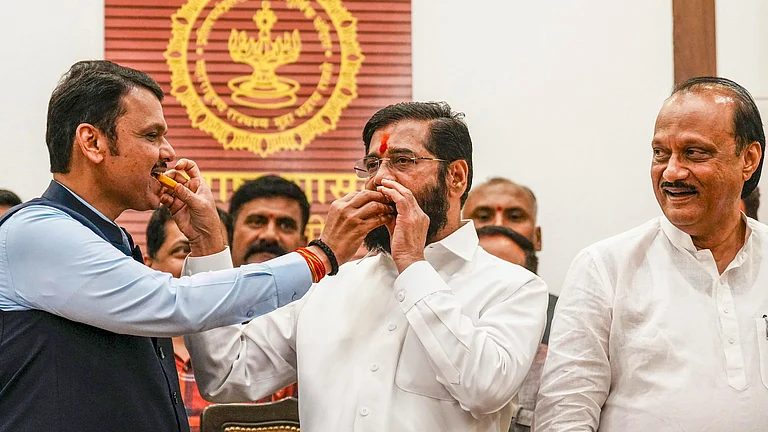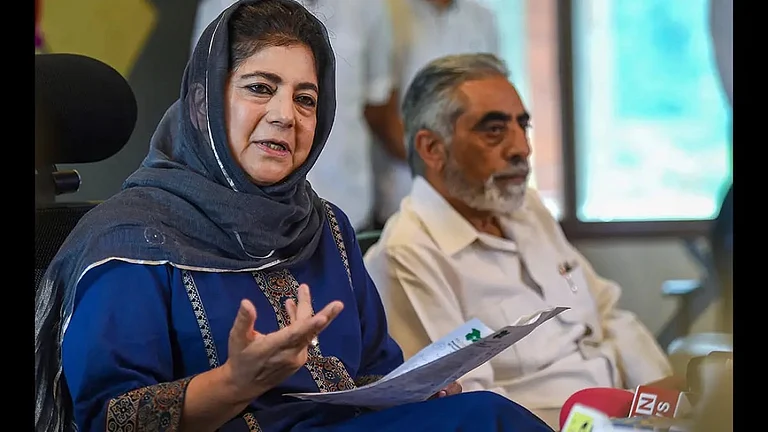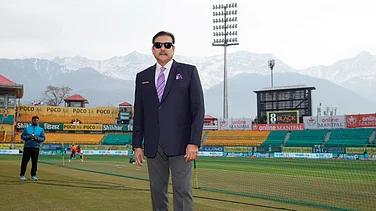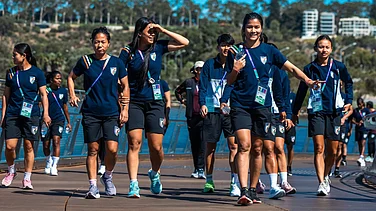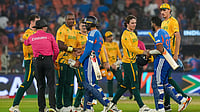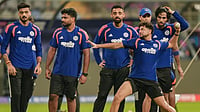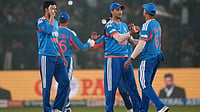In the middle of January 2024, the Indian national football team will compete in the AFC Asian Cup 2023, Asia's flagship football tournament, in Qatar. Awakening from its quadrennial slumber, the Asian Cup will pit 24 of the continent's best football teams against each other to produce one clear victor, one which will don the crown of Asian champions for the next four years. (More Football News)
Drawn alongside Australia, Uzbekistan, and Syria, India are the underdogs in their quartet. The Blue Tigers are only appearing in successive editions for the first time in history and the fifth overall. Yet, there is hope among the Indian faithful, hope that the chosen few to represent a nation of a billion will finally push through the threshold that has kept them away from the Asian elite for so long.
India have never qualified for the Asian Cup knockouts, but that should not imply that the Blue Tigers have never flirted with glory in this particular competition.
The establishment of the Asian Football Confederation and the beginnings of the AFC Asian Cup coincide with India's brief surge in Asian football. After the Second Great War, when the continent's football federations - including India - were laying the brickwork for a confederation to manage, organise and protect Asian football, the Indian football team were engaged in charting their course to the top of the food chain.
India had won the inaugural football tournament at the Asian Games in 1951, finished fourth at the Olympics' football tournament in 1956, and collected their second Asiad gold in 1962. Yet, for reasons lost in time, India's paths did not cross with the Asian Cup until 1964, by which they had already lost arguably the most successful individual in Indian football, synonymous with the team's success in the 1950s and early 60s.
Syed Abdul Rahim had taken over the Indian football team's coaching post in 1950; under his tutelage, India won the two Asiad golds and finished fourth at the Olympics. A year before India's first Asian Cup participation in 1964, however, Rahim lost his prolonged battle with cancer, leaving the ship, which had steered through challenging waters with grace and aplomb for more than a decade, without its towering mast.
In the wake of Rahim's death and India's qualification to the AFC Asian Cup in 1964 - the Blue Tigers qualified without playing a game after their opponents withdrew - the All India Football Federation decided to turn to foreign impetus for the first time and hired Englishman Harry Wright to fill the vacant position.
Wright picked most of the 19 men for his squad from Bengal, with striker Chuni Goswami leading the pack. But, as Goswami, Wright, and Co touched down in Israel for the week-long four-team finals, they were hit with a second jolt of tragedy: Jawaharlal Nehru, the first Prime Minister of independent India, had died, leaving behind a nation in mourning. Greatly affected by the loss, India proposed postponing the tournament but were denied this request. Putting their brave faces on, the Blue Tigers strode forward.
ALSO READ: India's 26-Man Squad For AFC Asian Cup 2023
India opened their AFC Asian Cup 1964 campaign against a familiar foe. Two years earlier, India had beaten Korea Republic to claim their second Asiad gold; they would commence their Asian Cup 1964 run against the same opponent and with the same result - a comfortable win. Inder Singh and K Appalraju, two names missing from the Indian roster in 1962, scored on the day to give their team the perfect start.
Alongside hosts Israel, India were considered the favourites to win the cup in 1964. Unsurprisingly, the burden of producing a tournament winner fell on the clash between the two, contested in front of 20,000 eager watches at the Bloomfield Stadium in Tel Aviv. In what remains one of Indian football's most significant 'What If...?' moments, they lost 2-0 to Israel, who scored twice in each half, once late on, to climb to the top of the charts - a position they retained by beating Korea Republic in the final game.
India, having come from behind to beat Hong Kong in their last match, finished second, which, to this day, remains their best-ever finish in the AFC Asian Cup.



